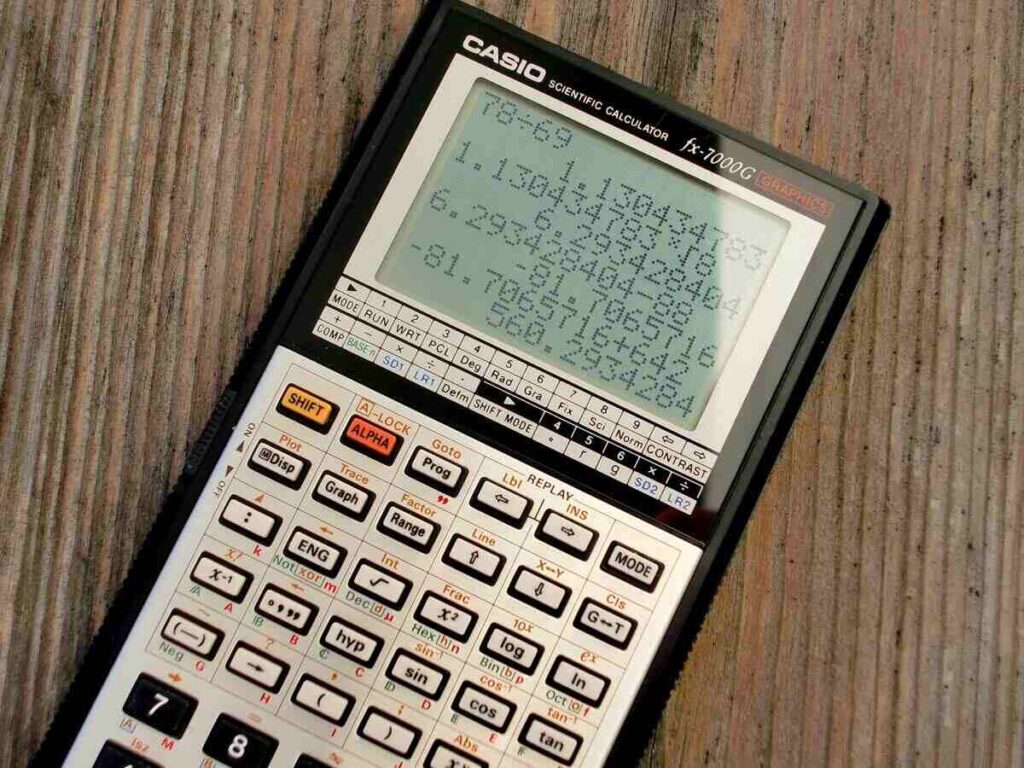Hey there, aspiring IB scholars! If you’re wondering about the ins and outs of IB Math Applications and Interpretation, you’ve come to the right place. From my many years of experience in the IB world, I can tell you that choosing the right math course is crucial. And that’s precisely what this article is all about! So, let’s get started!
What Is IB Math Applications and Interpretation?
If you don’t already know what is Math Applications class, let’s start with the basics. Are you the kind of person who loves making sense of real-world scenarios using mathematical models? Do you get excited when math explains things that you see in everyday life? Then, my friend, IB Math Applications and Interpretation is tailor-made for you. Let’s break it down a bit:
- Real-World Scenarios. Whether it’s calculating interest rates for loans or using statistics to understand trends, the course enables you to apply math in varied situations.
- Mathematical Models. You learn to construct and interpret mathematical models, which means you can turn real-world problems into solvable equations.
- Data Analysis. With a good chunk of the syllabus focused on statistics, you’ll learn to interpret, analyze, and represent data — a skill highly sought after in almost every field today.
In essence, this Math Applications class is not just about solving equations; it’s about tying those equations to the real world, making the abstract tangible and the confusing clear.
Standard Level Vs. Higher Level
Choosing between standard level (SL) or higher level (HL) is critical in your IB path and education. Both options have their merits, and your choice should align with your future aspirations. Here’s a simple guide to help you decide.
SL is a flexible option that equips you with essential math skills without overwhelming you. It provides a broad understanding of various mathematical concepts, from algebra to calculus. Compared to HL, the workload is generally more manageable, allowing you to focus on other challenging IB courses you might be taking. SL is also well-suited for careers in humanities, arts, and some sciences.
HL or Higher Level covers additional topics and gets into common subjects, providing a thorough understanding of mathematical concepts. It also includes another component where you conduct independent research on a topic of interest. HL is ideal for students eyeing careers in engineering, medicine, data science, statistics, or any other field requiring a robust understanding of mathematics.
This is an expanded view of what IB Math Applications and Interpretation offers and how to decide between SL and HL. Your decision will significantly impact your IB experience and future career, so choose wisely!
Why Choose Math Applications and Interpretation?
In IB Mathematics, Applications and Interpretation stands as a unique offering. As I’ve witnessed over the years, it’s the perfect course for students who want to see Math in everyday contexts. But take your time thinking this is just an introductory class. It’s so much more:
- The course covers various applications, from understanding how mortgage rates work to predicting climate change based on statistical models.
- It’s not just about applying formulas; it’s about interpreting results and making data-driven decisions to enhance your critical thinking skills.
- One of the most exciting aspects is the many career paths this course can prepare you for. Whether interested in business, healthcare, or tech, the course provides a solid foundation for future study.
Math Applications and Interpretation offers a unique blend of theoretical understanding and practical application. It’s a course that can make Math enjoyable and valuable, offering lifelong skills you’ll use long after the exams.

IB Mathematics Applications and Interpretation: Standard Level
What about The Standard Level (SL) course in Math Applications and Interpretation encompasses five critical areas of study:
- Number & Algebra.
- Functions.
- Geometry & Trigonometry.
- Statistics & Probability.
- Calculus.
These IB Math Applications and Interpretation topics are made to deepen your understanding of mathematical concepts and encourage their practical application in everyday scenarios.
Notably, the Applications SL course focuses on statistics and probability. It aims to equip you with the tools for statistical analysis, hypothesis testing, and using functions to model real-world situations.
The Structure of IB Mathematics Applications and Interpretations SL
As for assessments, every AI SL student must take two exams: Paper 1 and Paper 2. These tests collectively cover the comprehensive range of topics taught throughout the course. It’s worth mentioning that a graphic display calculator is essential for both exams, further underscoring the course’s practical focus. Let’s look at these two types in more detail:
- Paper 1, lasting 90 minutes, comprises short-answer questions that typically vary between 5 and 9 marks. These questions are designed to test a broad understanding of the curriculum.
- In contrast, Paper 2 spans 90 minutes but features extended-response questions ranging from 14 to 18 marks. This paper tests your deeper comprehension of select topics, providing ample room for logical reasoning and thoughtful inquiry.
Besides these exams, all SL Applications and Interpretation students must also submit an Internal Assessment (IA). This written project allows students to apply the mathematical principles they’ve learned to a subject that interests them.
Overview of IB Math Applications and Interpretation Syllabus
You’re in the right place if you’re wondering what to study in this fascinating course. The IB Math Applications and Interpretation syllabus is broad and specialized, catering to various interests and career paths.
As mentioned above, the IB Math Applications and Interpretation syllabus is spread over two years, culminating in a final exam comprising two separate papers. The first of these papers addresses key areas like algebra, calculus, and vectors. Conversely, the second paper focuses on Statistics, Probability, and Discrete Mathematics.
Topics to Read:
- IB Math IA Topics | 13 Different Options
- Comparing IB Math IA and Math AA: An In-Depth Look at the Differences and Similarities
- Math IA Grading Boundarie
- Breaking Down the Costs of Writing a Math IA: A Budgeting Guide for IB Students
- Mastering the IB Math IA Deadline for 2023: Time Management Tips and Tricks
- A Complete Guide to Comparing IB Math IA and Math AA
- IB Math IA vs Math AA
The five core topics are not randomly selected; they are your bread and butter for understanding this course’s scope and potential. Each one contributes uniquely to your comprehensive education in Math.
Optional Topics in IB Mathematics AI
Optional topics let you personalize your learning experience. The ability to pick subjects that interest you sets this course apart. From my experience, this customization option is a significant advantage, allowing you to focus on areas that align with your career aspirations or personal interests. Here are some specialized areas for deep learning:
- Financial Math. It’s ideal if you’re considering a career in finance or entrepreneurship.
- Advanced Statistics. Think big data, data science, and predictive analysis.
- Geometry Extensions. Perfect for those interested in engineering or architecture.
- Calculus Options. It is for those looking to get into advanced Math theories.
To sum it up, the IB Math Applications and Interpretation syllabus provides a strong foundation while offering flexibility for specialization. It’s not just a course; it’s a pathway to mastering the Math skills you’ll need in the future.
Don’t let the stress of choosing an IA topic hold you back.
Are you struggling to come up with topic suggestions for your IB Internal Assessment?
Our experienced writers can help you choose the perfect topic for your IA
Tailored to your specific subject and requirements.
Simply click:

IB Mathematics AI: Preparing for Exams
Ah, exams — the culminating experience of your IB Mathematics Applications and Interpretation SL or HL course. Don’t worry; I’ve walked this path and am excited to share some proven tips for turning your prep time into an experience that empowers and prepares you.
By the way, you can find many helpful articles on IB issues on our blog, including tips for excelling in IB exams.
1. Past Papers
Let me tell you, past papers are invaluable. They’re far more than just a set of questions; think of them as a rich resource that gives you an inside look into the format, types of questions, and exam grading criteria.
Practicing with these papers will help you grasp the recurring themes and questions that often appear, thus helping you plan your time wisely. They also serve as an excellent self-evaluation mechanism, allowing you to identify topics needing extra focus.
2. Calculator Skills
I think mastering your calculator is almost as important as the Math itself. Since you’ll be allowed to use a calculator during the exam, you’d be wise to use it fully.
Understand the shortcuts for trigonometric calculations, statistical computations, and equation solving. Many students also need to remember the handy feature that lets you store variables, which can save precious minutes during the test.
3. Study Groups and Peer Review
Another effective tool in your arsenal should be study groups. Believe it or not, teaching a concept to someone else can cement your understanding. Your peers may offer viewpoints or techniques you have yet to consider. Study groups can provide a well-rounded review and multiple perspectives on challenging topics.
4. Time Management
So, time management is a skill that will serve you well, not just for IB Applications and Interpretations exams but also in life. Build a study schedule that ensures you can cover all necessary material while leaving time for review and well-deserved breaks. From my experience, a well-balanced life leads to a well-balanced exam performance.
5. Seek Guidance and Use Digital Tools
Don’t shy away from asking for extra help. Teachers are a fantastic resource, often providing unique insights. Also, the Internet is teeming with valuable platforms and online communities that can help clarify tricky concepts or solve challenging problems.
Conclusion
So, what’s the verdict? IB Math Application and Interpretation offers a well-balanced, practical approach that can be beneficial in numerous career paths. Take it from someone who has been in the IB game for quite some time; this course is worth considering.
There you have it — a complete rundown of the IB Math Applications and Interpretation course. Best of luck, scholars! I’m sure you’ll excel in whatever you choose to do. And remember, you can always contact IB Writing Service for help.




